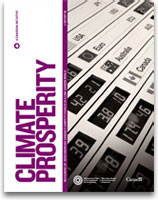
News |
- First Nations Protest Peacefully at G20
- New Emission Rules for Canadian Coal Plants
- Oil Money Spills into California Ballot
- Manitoba Wetlands Public Consultation
- Groups Urge Provinces to Get Off Oil!
- Raise Your Voices!
- U.N. Honours Biodiversity with Independent Scientific Body
- Measuring Up Report Released by NRTEE
- Athabasca River Toxic Metals Increasing
- Cod Stocks Classified Endangered
- Aboriginal Peoples Key to Boreal Agreement
- Tim Horton Camp Park Location Set
| First Nations Protest Peacefully at G20 | 28 June 10 |
 Approximately 1,000 First Nations people and supporters gathered outside Queen's Park, June 24, and marched through downtown Toronto. The rally aimed to draw attention to aboriginal issues for international media covering the G8 and G20 summits. Approximately 1,000 First Nations people and supporters gathered outside Queen's Park, June 24, and marched through downtown Toronto. The rally aimed to draw attention to aboriginal issues for international media covering the G8 and G20 summits."We're here basically to bring attention to the impact that G8 and G20 meetings have, and the effect their social and economic policies are going to have on indigenous people, lands and resources," said Russell Diabo, a Quebec Mohawk and spokesman for Defenders of the Land. "We have a lot of unresolved issues we need to see addressed domestically, without Stephen Harper talking about going overseas and dealing with development there." The group also called for control of claimed land, and urged the government to investigate the disappearance of some 500 aboriginal women across Canada. Members of the rally passed out mock report cards for Canada, giving the country failing grades in several categories, including the failure to adopt the United Nations Declaration on the Rights of Indigenous Peoples, and a failure to protect of lands and resources. View April 4, 2010 Defenders of the Land press releaseView June 24, 2010 Toronto Star article View June 24, 2010 Winnipeg Free Press article View June 24, 2010 CBC News article View June 25, 2010 Indigenous Peoples Issues & Resources article Source: Toronto Star, Winnipeg Free Press |
|
 Print version Print version |
Top |
| New Emission Rules for Canadian Coal Plants | 28 June 10 |
 On June 23rd, 2010, Environment Minister Jim Prentice announced Canada will phase out older coal-fired power plants to cut greenhouse gas emissions as the country moves toward natural-gas fired plants as a new power standard. On June 23rd, 2010, Environment Minister Jim Prentice announced Canada will phase out older coal-fired power plants to cut greenhouse gas emissions as the country moves toward natural-gas fired plants as a new power standard.The legislation, expected to be in place by early 2011, but not in effect until 2015, will force electricity producers to phase out older, high-emitting coal-fired plants, change technology in existing plants, and require newer facilities to match the lower greenhouse-gas emissions of more efficient natural-gas fired plants. Canada has 51 coal-fired units producing 19 percent of the country's electricity and 13 percent of its greenhouse gas emissions. However, 33 coal plants will reach the end of their economic lives by 2025, which may leave existing coal plants operating another 15 years. Unless operators make substantial investments to cut emissions from the aging facilities, the plant will be required to shut down. "Our regulation will be very clear," states Prentice. "When each coal-burning unit reaches the end of its economic life, it will have to meet the new standards or close down. No trading, no offsets, no credits." This may leave existing coal plants operating for another 15 years, in business as usual mode. "We're looking at this positively," states Marlo Raynolds, executive director of the Pembina Institute. "For once the minister is heading in the right direction but the details of the regulations must actually result in a true and timely phase out (of coal power) in Canada." Climate Action Network Canada voiced concern about the pattern of announcements for future regulations to address climate change and emissions, which then do not then materialize. View June 23, 2010 Environment Canada press releaseView June 23, 2010 Reuters article View June 23, 2010 CBC News article View June 22, 2010 CTV News article View June 23, 2010 Climate Action Network Canada news release Source: Reuters |
|
 Print version Print version |
Top |
| Oil Money Spills into California Ballot | 28 June 10 |
 An oil industry-backed measure to suspend the state climate-change law has qualified for the 2010 November California state ballot. With the help of paid "signature gatherers" funded by mostly oil industry funding—the ballot proposition received the 400,000 required signatures. An oil industry-backed measure to suspend the state climate-change law has qualified for the 2010 November California state ballot. With the help of paid "signature gatherers" funded by mostly oil industry funding—the ballot proposition received the 400,000 required signatures.Under California law, known as AB 32, the state is setting limits on greenhouse gas emissions from automobiles, oil refineries and other industries, and encouraging the sale of more fuel efficient cars. California will probably also require 33% of the state's electricity come from renewable sources by 2020, up from about 15% today. If passed, The proposition on the November ballot would delay AB 32 until unemployment falls from 12.4 percent to 5.5 percent or lower. Republican Californian Gubernatorial candidate Meg Whitman, who is vying to replace Schwarzenegger in the November 2010 election, says AB 32 would put California's businesses at a disadvantage to rivals in other states. Meanwhile rival Democratic candidate Jerry Brown, the state's attorney general and former two-term governor, supports AB32. Schwarzenegger, who sees AB 32 as part of his legacy, commented, "This initiative sponsored by greedy Texas oil companies would cripple California's fastest-growing economic sector, reverse our renewable energy policy and decimate our environmental progress for the benefit of these oil companies' profit margins." View June 23, 2010 Los Angeles Times articleView June 23, 2010 ClimateBiz article View June 23, 2010 Reuters article View June 22, 2010 Huffington Post article Source: Los Angeles Times |
|
 Print version Print version |
Top |
| Manitoba Wetlands Public Consultation | 25 June 10 |
 The Manitoba Water Council is asking Manitobans how they feel about the management and conservation of wetlands in the province. The Manitoba Water Council is asking Manitobans how they feel about the management and conservation of wetlands in the province.The public will have the opportunity to make verbal submissions, complete a Wetlands questionnaire and review a Wetlands workbook at a series of public meetings held across Manitoba between June 9, 2010 and July 14, 2010. Alternatively, the public will also be able to make written submissions until August 15, 2010. The public input collected will help the Council in advising the Minister of Water Stewardship on issues surrounding wetlands and water stewardship in Manitoba. Electronic copies of the of the questionnaire and workbook are available through the Manitoba Water Council webpage. Hardcopies are available by calling 945-1007 or mailing: Manitoba Water Council, Re: Wetland Public Consultations, Box 11, 200 Saulteaux Crescent, Winnipeg MB R3J 3W3 The Manitoba Water Council, created by the Water Protection Act, is the senior advisory body to the Minister of of Water Stewardship. The Council advises the Minister on policies, programs, plans and legislation to achieve he government's goal of the best water for all forms of life and lasting prosperity. View the Water Council webpageSource: Manitoba Water Council |
|
 Print version Print version |
Top |
| Groups Urge Provinces to Get Off Oil! | 25 June 10 |
 Just before the annual Quebec and Ontario cabinet meeting, thirty environment, urban planning and health groups urged Ontario Premier Dalton McGuinty and Quebec Premier Jean Charest to adopt new laws and policies to transition away from oil. Just before the annual Quebec and Ontario cabinet meeting, thirty environment, urban planning and health groups urged Ontario Premier Dalton McGuinty and Quebec Premier Jean Charest to adopt new laws and policies to transition away from oil.On June 15, 2010, Environmental Defence and Equitere placed a full-page ad in the Quebec daily Le Soleil and published a joint opinion piece in the Toronto Star. Both called on the two provinces to get off oil. "Quebec and Ontario send tens of billions of dollars each year to oil companies operating in the U.S. Gulf and in the tar-sands when instead we could be creating jobs at home by getting off oil," said Steven Guilbeault of Equiterre." A June 14, 2010 Environmental Defence poll, conducted by Angus Reid, showed that more than 60% of Ontario residents surveyed support government laws and spending to move away from oil to clean energy, even if it means new taxes or fees on oil and gas pollution. "The tragic oil spill in the Gulf has brought the dangers of continued dependence on oil into sharp focus," explained Rick Smith, Executive Director of Environmental Defence, adding, "Countries like Denmark and Israel are mounting massive scale ups in electric vehicles, while other countries are making investments in public transit. Real world practical solutions already exist. It is time for us to both prevent future spills and to tackle global warming by getting off oil." View June 14, 2010 Environmental Defence releaseView June 15, 2010 Environmental Defence release View June 21, 2010 Environmental Defence release View June 15, 2010 Toronto Star op-ed View June 15, 2010 Montreal Gazette article Source: Environmental Defence |
|
 Print version Print version |
Top |
| Raise Your Voices! | 25 June 10 |
 A new coalition, Voices-Voix, is sounding an alarm that the quality and health of democratic life in Canada is under serious threat. A new coalition, Voices-Voix, is sounding an alarm that the quality and health of democratic life in Canada is under serious threat."Voices-Voix, came together because of growing and serious concerns that the space for dissent and debate in Canada is rapidly shrinking," says Alex Neve, Secretary General of Amnesty International Canada. On June 17, 2010 Voices-Voix released its "Raise Your Voices" Declaration signed by human rights, women's, aboriginal, labour, environment, student, faith-based and development organizations. The Declaration provides a list of undemocratic Government actions since the Conservatives were elected in 2006, including:
"If you shut down diversity, there will be weak policy debate and that means bad public policy," explained Gerry Barr, President and CEO of the Canadian Council for International Co-operation. The Declaration calls upon the Government of Canada to:
View more information on the Declaration of the Voices-Voix Coalition website View June 17, 2010 Amnesty International press release Source: Declaration of the Voices-Voix, Amnesty International |
|
 Print version Print version |
Top |
| U.N. Honours Biodiversity with Independent Scientific Body | 18 June 10 |
 More than 230 delegates from 85 nations backed establishment of a new international body to mitigate destruction of the world's flora and fauna at a five-day U.N. meeting in Busan, South Korea, June 2010. This year is the International Year for Biodiversity. More than 230 delegates from 85 nations backed establishment of a new international body to mitigate destruction of the world's flora and fauna at a five-day U.N. meeting in Busan, South Korea, June 2010. This year is the International Year for Biodiversity.The U.N. Millennium Ecosystem Assessment, published in 2005, concluded human activities threatened the Earth's ability to sustain future generations. "The dream of many scientists in both developed and developing countries has been made a reality," said Achim Steiner, executive director of the U.N. Environment Programme (UNEP). The Intergovernmental Science Policy Platform on Biodiversity and Ecosystem Services (IPBES) will be modeled on the International Panel on Climate Change. The new body aims to carry out high quality peer reviews of science on biodiversity and ecosystem services emerging from research institutes across the globe. Plans to formally set up the IPBES require approval of the UN General Assembly, and will be presented to environment ministers for endorsement at UNEP's global ministerial meeting February 2011. View June 11, 2010 International Centre for Trade and Sustainable Development articleView June 14, 2010 BBC News article View June 11, 2010 UNEP press release View June 16, 2010 David Suzuki article Source: International Centre for Trade and Sustainable Development, BBC News, UNEP |
|
 Print version Print version |
Top |
| Measuring Up Report Released by NRTEE | 18 June 10 |
 The National Round Table on the Environment and the Economy (NRTEE) released Measuring Up: Benchmarking Canada's Competitiveness in a Low-Carbon World, as the first in a series of seven reports examining how Canada can prosper through the economic risks and opportunities of climate change. The National Round Table on the Environment and the Economy (NRTEE) released Measuring Up: Benchmarking Canada's Competitiveness in a Low-Carbon World, as the first in a series of seven reports examining how Canada can prosper through the economic risks and opportunities of climate change.Climate Prosperity report series is a comprehensive, two-year policy research and advisory program being undertaken on economic risks and opportunities to Canada of climate change. These reports will examine what the impacts of a warming climate mean to Canada's environment and what a global low-carbon transition will mean to Canada's economy. Measuring Up outlines Canada's first Low-Carbon Performance Index (LCPI), which can be used to compare Canada carbon performance to other G8 countries. The LCPI examines effects under three categories: emissions and energy; innovation, skills, investment; and policy and institutions. The categories are meant to illustrates Canada's performance while examining our capacity to prosper in a carbon constrained world. Visit NRTEE websiteView NRTEE Report: Measuring Up: Benchmarking Canada's Competitiveness in a Low-Carbon World View NRTEE Website How Canada Ranks: Benchmarking Low-Carbon Performance of Canada and the G8 View May 20, 2010 MarketWire article View Manitoba Wildlands' Canada Initiatives page Source: NRTEE |
|
 Print version Print version |
Top |
| Athabasca River Toxic Metals Increasing | 16 June 10 |
 Contrary to what government and industry tells Albertans, not all toxic metals in the Athabasca River are from natural sources says David Schindler, University of Alberta aquatics ecologist. Contrary to what government and industry tells Albertans, not all toxic metals in the Athabasca River are from natural sources says David Schindler, University of Alberta aquatics ecologist.Research by Schindler and his colleagues shows increases of toxic metals in the river and lands surrounding. Most elements listed by the U.S. Environmental Protection Authority were high including antimony, beryllium, cadmium, copper, nickel, selenium, silver, thallium and zinc. Levels were highest near oil sands industrial development. Dr. Gina Solomon, senior scientist with Natural Resources Defense Council was invited by the community to provide her thoughts on the February 2009 Alberta Cancer Board study. "What you keep seeing is links to hydrocarbons and petroleum products in the scientific studies. That's the case for the leukemias and lymphomas, as well as for the bile-duct cancer and for the soft-tissue sarcomas, which is also an extremely rare cancer," Solomon told the crowd, noting her biggest concern is the potential contaminants in the food chain. Both Schindler and Solomon support calls from the Fort Chipewyan community for further research regarding new higher levels of contaminants and potential increased illness. View May 4, 2010 Calgary Herald articleView May 5, 2010 Edmonton Journal article View October 23, 2009 David Schindler article Source: Calgary Herald, Edmonton Journal |
|
 Print version Print version |
Top |
| Cod Stocks Classified Endangered | 16 June 10 |
 The Committee on the Status of Endangered Wildlife in Canada (COSEWIC), federal advisory board on species at risk, classified four out of six Canadian cod units as endangered. They noted cod numbers have declined by more than 90 percent since the 1960's, primarily due to over-fishing. The Committee on the Status of Endangered Wildlife in Canada (COSEWIC), federal advisory board on species at risk, classified four out of six Canadian cod units as endangered. They noted cod numbers have declined by more than 90 percent since the 1960's, primarily due to over-fishing."It's time to hold the federal government accountable to manage, conserve, and develop our fisheries on behalf of Canadians," said Bettina Saier, Director, Oceans, WWF-Canada. "Although good policy on sustainable fisheries management does exist in Canada, implementation on Atlantic groundfish fisheries has occurred slowly, if at all. Progress is needed to ensure legislative tools to enable rebuilding depleted stocks, such as Atlantic cod, are consistent with those used throughout much of Europe and the United States." (May 3rd, 2010 WWF press release.) In addition to declining cod stocks, COSEWIC also highlighted:
View May 3, 2010 COSEWIC press release View Manitoba Wildlands' Biodiversity & Species page Source: WWF, COSEWIC |
|
 Print version Print version |
Top |
| Aboriginal Peoples Key to Boreal Agreement | 14 June 10 |
 Nine environmental groups signed The Canadian Boreal Forest Agreement with twenty-one forestry companies during May 2010. Forestry companies agreed to halt logging for the next two years on an unclear amount of boreal forestry productive lands under license to the companies, while plans for new protected areas and woodland caribou conservation plans are developed. Nine environmental groups signed The Canadian Boreal Forest Agreement with twenty-one forestry companies during May 2010. Forestry companies agreed to halt logging for the next two years on an unclear amount of boreal forestry productive lands under license to the companies, while plans for new protected areas and woodland caribou conservation plans are developed.The organizations include: the Canadian Boreal Initiative, Canadian Parks and Wilderness Society, Canopy, the David Suzuki Foundation, ForestEthics, Greenpeace, The Nature Conservancy, Pew Environment Group, International, Boreal Conservation Campaign, Ivey Foundation, and 21 companies - from the Forest Products Association of Canada. The David Suzuki Foundation issued column to say First Nation participation is essential for the agreement to be viable. Greenpeace Canada, according to media leaks, is debating its participation in the agreement. Most boreal regions in Canada are also First Nation traditional territory, and in many cases treaty land entitlements, aboriginal rights, and title issues remain unresolved. Throughout the boreal, government is required to consult with and accommodate Aboriginal people prior to development decisions that may affect Aboriginal rights. Chief Ghislain Picard of the Assembly of First Nations of Quebec and Labrador (AFNQL) commented, "The intentions... must obviously be backed up by a genuine and tangible willingness to involve the First Nations that have rights over these lands." Grand Chief Stan Beardy of Nishnawbe Aski Nation (NAN), Ontario indicated in his press release: "The right of consent is reflected in the spirit and intent of both Treaty 9 and Treaty 5, this is our right. We must be part of the decision making, benefit from resources in our traditional territory, and be involved in how the land is managed." Visit Canadian Boreal Forest Agreement websiteView May 26, 2010 Suzuki Foundation article View May 20, 2010 NAN press release View May 20, 2010 AFNQL press release (PDF) View The Canadian Boreal Forest Agreement (PDF) View Map of Areas Effected by the Canadian Boreal Forest Agreement (PDF) View Manitoba Wildlands' Aboriginal Court Cases & Consultations page Source: Suzuki Foundation, NAN, AFNQL |
|
 Print version Print version |
Top |
| Tim Horton Camp Park Location Set | 11 June 10 |
 On May 27, 2010 Manitoba announced the Tim Horton Children's Foundation youth leadership camp would be located near Sylvia Lake in Whiteshell Provincial Park. On May 27, 2010 Manitoba announced the Tim Horton Children's Foundation youth leadership camp would be located near Sylvia Lake in Whiteshell Provincial Park.This will be Tim Horton's seventh camp in Canada. The camps provide underprivileged youth, aged 13 to 17, an opportunity to learn leadership skills in a wilderness setting. The camp, near the town of Pinawa, will cost $12 million to build and accommodate up to 260 children between the ages of 13 and 17. Tim Horton's and Manitoba were forced to abandon earlier attempts to build at Meditation Lake due to public outrage over a lack of consultation, and water quality results showing high levels of blue-green algae made the site selected unsuitable. The Wilderness Committee of Manitoba (WCM) was instrumental in raising awareness and mobilizing opposition to the Meditation Lake site, and they remain concerned about the current proposal. "On the surface this is great, positive news. Underprivileged kids get to go to camp and learn leadership skills, and there seems, finally, to be some discussions about First Nations youth involvement and opportunity. Who would argue with that?" stated WCM Director Eric Reder, adding "But 'does the end justify the means?' We should reflect on whether we want to allow another piece of nature to be fragmented, whether we want biological diversity to be further threatened, and whether we want to see just a bit more of the essential components of a healthy environment disappear?" At a recent Winnipeg Open House regarding the new site Tim Horton Foundation representatives indicated this camp would mostly be used by children from outside Manitoba, during the summer months. Manitoba children could use it off season, and during the winter. View May 27, 2010 Province of Manitoba press releaseView May 27, 2010 Wilderness Committee press release View May 27, 2010 CBC News article View May 28, 2010 Winnipeg Free Press article View June 9, 2010 Lac Du Bonnet Leader article View February 24, 2010 Manitoba Wildlands news item View October 27, 2009 Manitoba Wildlands news item Source: Government of Manitoba, Wilderness Committee |
|
 Print version Print version |
Top |


 RSS Feeds:
RSS Feeds: